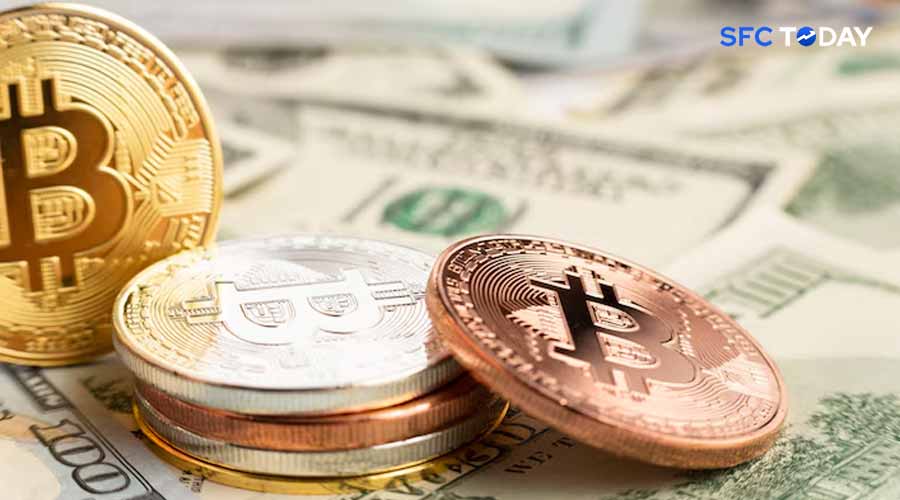Digital Money vs. Traditional Currency: The Future of Finance Unfolds
The debate about whether cryptocurrency would surpass fiat currency is complex, ranging from economic to sociopolitical and technological facets. Since digital currencies continue to spread across the world, there is a significant need to understand the primary difference between fiat and cryptocurrencies, the advantages and disadvantages associated with each, and the potential future of money.
What is Fiat Currency
Fiat Currency is defined as money declared by a government to be legal tender such that it must be accepted for payment of debts. In other words, fiat currency differs from commodity money in the respect that value is not obtained from an asset like gold or silver but from the trust and confidence people have in the issuing government for the fiat money. Major fiat currencies include the US dollar and the euro. Economic conditions and government policies mainly affect these currencies.
Features of Fiat Money
Control by a Central Authority: Fiat money is controlled by a central authority central banks control their issuance by monetary policy. This allows governments to adapt to the changes in an economy by an increase in interest rates or simply by printing more money.
Stability: Fiat is, generally more stable than its counterparts. They are much less volatile, making fiat fit better for everyday expenditure as well as long-term saving.
Legal Tender: According to law, it’s acknowledged as a legally tenable tender for paying debts in any amount to everyone and for all other duties.
Rise of Cryptocurrency
Cryptocurrency is a type of digital or virtual money that uses cryptography for protection and operates on decentralized networks based on blockchain technology. Cryptocurrencies are not backed by governments; instead, value is often determined by demand and supply dynamics in markets.
Characteristics of Cryptocurrency
Decentralization: Cryptocurrencies are decentralized. That means that there is no central authority that controls transactions. Decentralization minimizes the risks of corruption and fraud in centralized banking systems.
Volatility: The prices of cryptocurrencies are very volatile. Volatility, though sometimes risky, makes some investors profit handsomely, while for others, it creates uncertainty about the usability of such currencies.
Privacy and Security: Cryptocurrency transactions may offer better privacy since personal identity is not directly linked to wallet addresses on the blockchain. On the other hand, such anonymity can enable illegal uses.
Benefits and Drawbacks
Benefits of Fiat Currency
Stability: Since fiat currencies are intrinsically stable, they are more suitable for daily trade.
Consumer Protections: Most fiat currencies are insured by government agencies (for instance, FDIC in the United States), which provides a kind of safety net for depositors.
Disadvantages of Fiat Currency
Risk of Inflation: Fiat currency may be printed without limits; hence the purchasing power becomes reduced gradually due to inflation.
Control Issues: A central bank has full authority over the monetary policy; thus if it is mismanaged or economic instability arises.
Benefits of Cryptocurrency
The ability for High Gains: Some cryptocurrencies will increase in value exponentially within a short space of time, thus drawing the interests of investors into such fields.
Low transaction costs: Most cryptocurrencies permit fast transactions at low fees in comparison with the traditional system of banks.
Accessibility and Global Acceptance: Without any form of intermediary, it can be sent from anywhere to anywhere in the world and hence accessible even to those who are still unbanked.
Market Volatility: The price fluctuations associated with cryptocurrencies are extreme and, therefore, not trustworthy as a store of value.
Regulatory Uncertainty: Governments all over the world are finding ways to regulate cryptocurrency. This creates uncertainty about their future usability and legality.
Future Landscape
Whether cryptocurrency will fully replace fiat currency. Despite their touted potential to provide an even more efficient and less corrupt monetary system due to decentralization, there are great challenges ahead. Such hurdles include regulatory, scalability issues, and public trust issues. Countries such as El Salvador have begun to take steps in adopting Bitcoin as legal tender, pointing toward the integration of cryptocurrencies in national economies. However, adoption at the mass level is limited by price volatility and consumer protection disadvantages compared with fiat systems.
Conclusion:
While cryptocurrency answers some of the problems facing fiat currency, such as inflation risk and the inefficiencies of transactions, it is unlikely to fully displace fiat currency in the near term. Perhaps for a long time to come, the two will coexist, each addressing different needs in the global economy. As technology evolves and as regulatory frameworks adapt, it’s possible that this relationship between cryptocurrency and fiat is going to change dramatically over the next few years.







